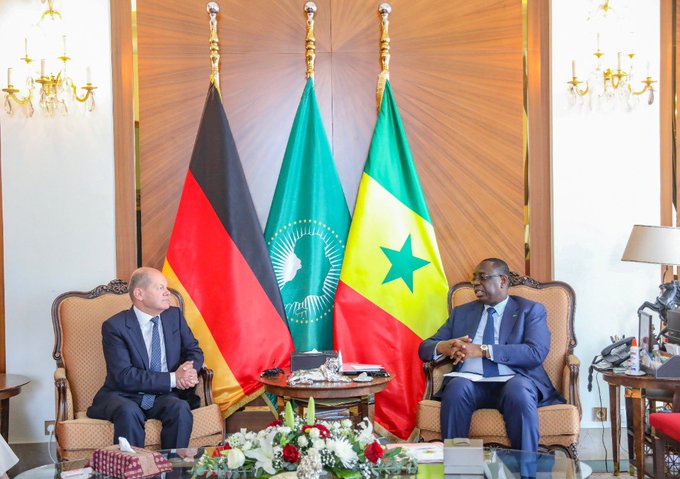Senegal’s Future Gas Sales : Europe Knocking at the Door

Caught by the throat due to lack of Russian gas, European countries are ready to do anything to find alternative sources. And Senegal’s gas, almost on their doorstep, has all the attractions. The problem is that production is already reserved for customers from Asia. How far are the West willing to go for this product?
Many Senegalese have thought, since the conflict in Ukraine and the consequences that followed, that hydrocarbons off our coast could validly replace Russian gas in European homes and factories. One could believe that they were in the secrets of the gods. On the sidelines of his talks in Rotterdam last week, Macky Sall spoke to journalists about how GTA gas could be marketed in Europe at the time of its exploitation.
The Senegalese Head of State assured our colleagues on September 6 that negotiations were underway to determine the markets to be supplied, « including the European market ». The President told Bloomberg.com that Asian countries were also interested in the product.
In fact, the Senegalese-Mauritanian gas of Grand Tortue Aymehin (Gta) will enter into operations at a time when European countries are desperately looking for alternatives to Russian gas, in a context of political and economic sanctions against Vladimir Putin’s country, followed by restrictions on the export of this product that the Russian leadership imposed in retaliation. The gas discovered on the border between Mauritania and Senegal, and exploited by British and American companies British Petroleum (BP) and Kosmos Energy, even if it is not the most important quantitatively, has gained considerable importance.
While the Final Investment Decision provided for a production of 2.5 million tons of LNG per year in the first phase, a quantity mainly destined for the Asian market, the West would be going out of its way to make a difference. Their wish would be, if not to push Senegal to renegotiate the contracts already concluded with Asian countries, to devote most of the production to the European markets, at least, to obtain a certain quantity of the said gas. It is in this sense that we must understand the noria of European dignitary visits to Dakar. First there was the European Commissioner for Energy, Khadri Simson, followed by the German Chancellor, Olaf Scholz, who came to Dakar last May. These visits were officially intended to discuss gas and renewable energies. There was also last week the passage of the Polish Head of State, Andrzej Duda.
All these leaders do not hide their desire to « help » Senegal and Mauritania to increase the production capacity of GTA, so that Europe can benefit. The two countries are certainly not insensitive to this new situation, the irony of which escapes few people.
At the Cop 26 in Glasgow, European leaders resolved to stop financing the exploitation of new fossil energy sources; much to the chagrin of African countries including Senegal. Since then, Macky Sall has never ceased to denounce this injustice, recalling that the development of the West was based on fossil fuels, and that they wanted to deprive Africans, who do not even have energy sources yet.
President Sall even recalled in Rotterdam that, « according to the latest Report of the International Energy Agency, in the maximum hypothesis that the continent would exploit all its gas discoveries (more than 5000 billion m3), over 30 years, the cumulative of its emissions would represent barely a negligible part of 3.5% of global emissions ». Today, the context of the Ukrainian war and gas sanctions has caused Europeans, and Germans in particular, to rush to shale gas from Americans and Canadians. Senegalese gas, under these conditions, has become highly competitive.
The LNG extracted from GTA will be a maximum of 4 days from Europe, compared to a dozen for gaz exported from America, and about a week from the North Stream pipeline. This means that Senegal and Mauritania have entered the geopolitical strategies that are shaking the Western world. And this is for the moment, for the West, more important than African positions for or against their war against Russia.
African negotiators should nevertheless be careful not to easily give in to Western mirages. The danger would be to call into question contracts already signed in due form with Asian clients, to take advantage of the current price spike, and to seek to favour Europeans suffocated by the lack of Russian gas. Be careful not to find yourself in a situation similar to that of the contract of Kumba Resources with the iron of the Falémé, which we were dragged into by the mirages of Arcelor Mittal.
By Mouhamed GUEYE / mgueye@lequotidien.sn

